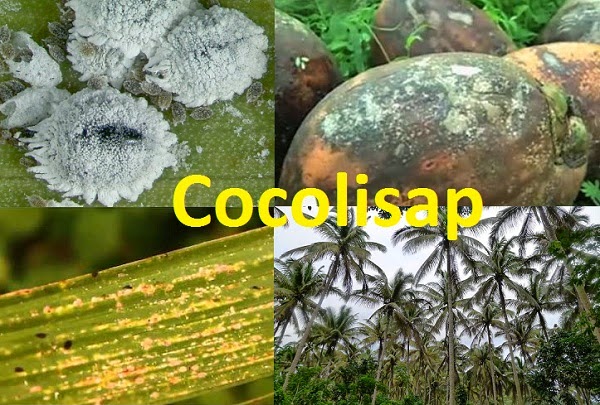LOS BAÑOS, Laguna — The Department of Science and Technology-Philippine Council for Agriculture, Aquatic and Natural Resources Research and Development (DOST-PCAARRD) is working closely with the Office of the Presidential Assistant for Food Security and Agricultural Modernization (OPAFSAM) and other concerned agencies towards a common goal of curbing the coconut scale insect (CSI) or “cocolisap” outbreak in CALABARZON.

To mitigate CSI’s impact on the local coconut industry, DOST-PCAARRD is currently funding and monitoring seven R&D projects to develop systematic, preventive and immediate S&T-based control strategies against the said insect pest.
In a study on pest dynamics and ecological causes of the infestation, the project team from the Philippine Coconut Authority (PCA) reported that cocolisap from an infested tree can disperse up to 400 meters per month in northeast direction. The initial result of the study is instrumental in mapping and forecasting the spread of infestation.
Experts projected that the infestation could soon reach other major coconut growing provinces if not immediately and effectively managed.
Currently, pruning of infested leaves is being promoted as the first line of defense against cocolisap. For certified organic farms, massive spraying of botanical and other organic medium is advised during early stage of infestation.
As the infestation worsens however, PCA advised the emergency crop care strategy of using registered systemic insecticides through trunk injection to control the population of the invasive cocolisap.
Trunk injection is recommended on targeting the pest, preventing damage to environment, and minimizing health risks as compared with other application methods such as spraying, soil drenching and root feeding.
Scientists and researchers from different agencies crafted a general protocol for the emergency, area-wide control of cocolisap. An Integrated Pest Management (IPM) protocol was endorsed by DOST to OPAFSAM for distribution to farmers, local government units, and NGOs. It includes harvesting of all harvestable nuts, pruning of infested leaves, insecticide trunk injection, spraying of organic pesticide (if early stage of localized outbreak is observed), release of biological control agents (BCA), field monitoring for presence of insecticide residue, and fertilization of treated palms.
As part of the Scale Insect Emergency Action Program (SIEAP) of the CSI Task Force, the application of insecticides will be done only to contain the high insect population.
CSI Task Force stressed that once the population reaches the manageable level where the insect is no longer significantly damaging, organic spray materials will be used and biocontrol agents such as predators (Telsimia nigrita and Chilocorus nigrita) and parasitoid will be released to feed on the remaining populations.
To beef up control measures, DOST-PCAARRD also supports other research and development (R&D) initiatives such as optimization of the mass production protocol for BCA, upgrading of mass production facility for BCA, promotion of IPM, and development of web-based breeding resource and Eco-TILIING towards insect resistance breeding in coconut.
With the application of these S&T-based emergency measures, the government hopes for the effective control of CSI infestation, high recovery of coconut trees, and a restored livelihood for our local farmers.
The Emergency Research and Development Response Program and Management of Coconut Scale Insect is one of the many undertakings of the Council in meeting the challenge of DOST’s Outcome One which is to provide science-based know-how and tools that enable the agricultural sector to raise productivity to world-class standards.
Results of PCAARRD and its partner agencies’ R&D efforts in the agriculture, aquatic and natural resources (AANR) sectors shall be showcased during the upcoming National Science and Technology Week (NSTW), on July 24-28, 2014 at the SMX Convention Center, Mall of Asia Complex, Pasay City.
